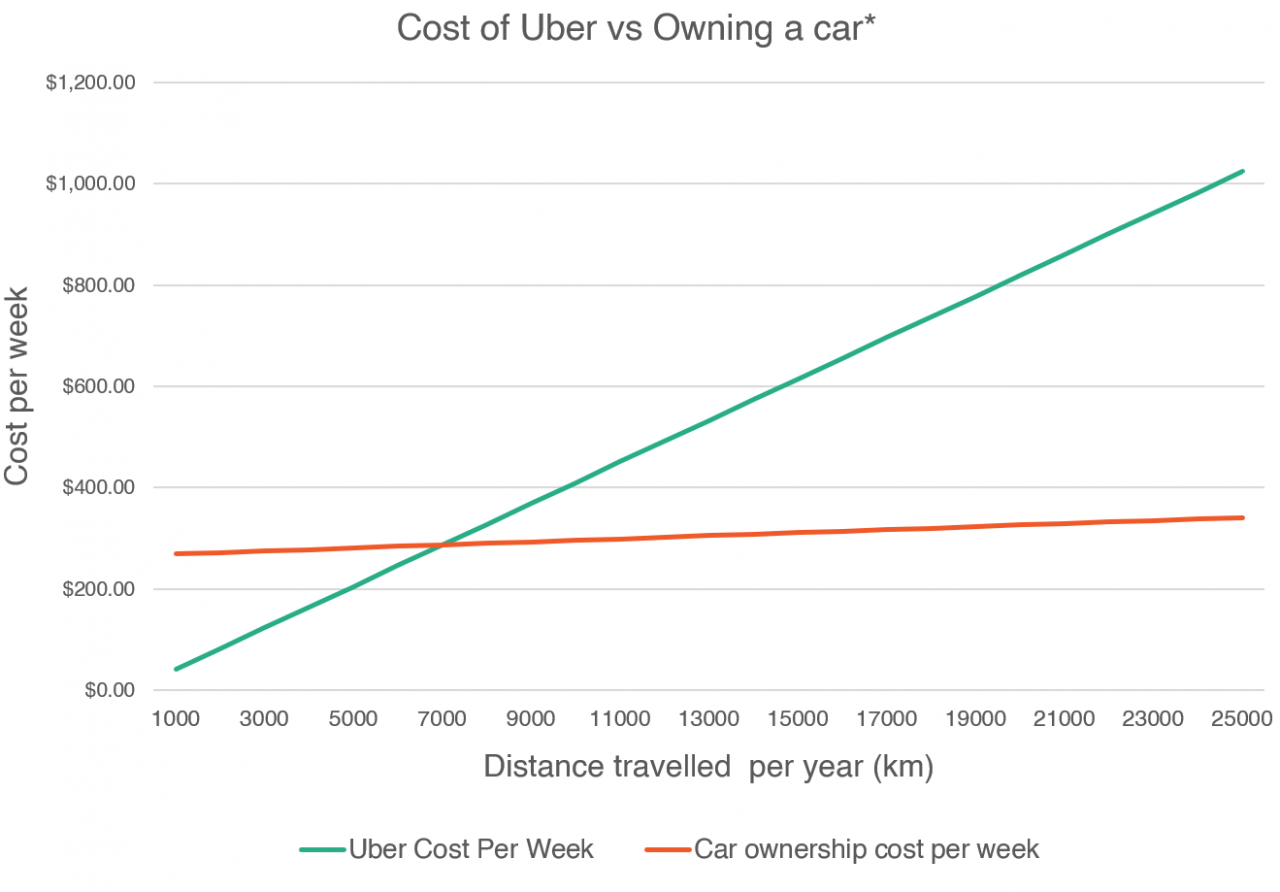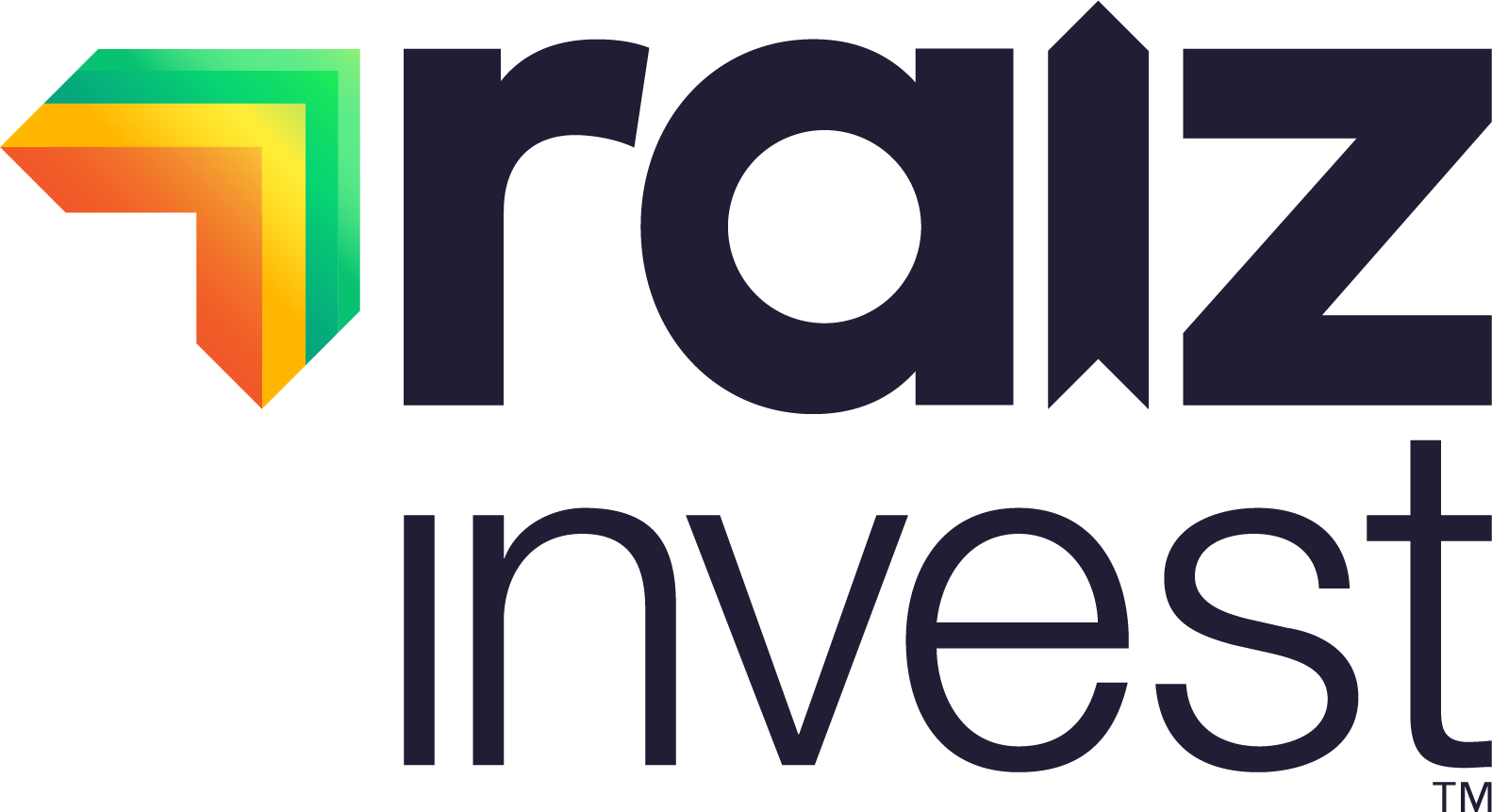Is it cheaper to own a car or use Uber?

You’re probably thinking that this question is too dependent on a multitude of different factors to give a definitive answer. We agree, but nonetheless thought it’d be an interesting proposition to explore. After analysing some data and applying a few assumptions, we came up with some interesting results.
How much does transport cost?
We can source this information from research by the Australian Automobile Association (AAA). Every quarter they release a report that calculates the average weekly transport cost for the typical Australian household. The report goes into some detail, breaking down costs by state, capital cities and regional areas.
To calculate average costs, the report takes what it considers a typical household, and then applies transport-related expenses (up-font and ongoing) to the hypothetical household based on its lifestyle and family composition. The characteristics of the household reflect the most common characteristics of the Australian population.
The hypothetical city household characteristics:
- A nuclear family (couple with children);
- Both parents employed full-time;
- Live in middle to outer ring suburbs with relatively high population density;
- Has good access to public transport;
- Uses toll roads to access the CBD;
- Own two cars, one is driven 15,000 kilometres a year and the other 10,000 kilometres a year:
- One car is owned outright, the other is financed by a loan;
- One parent is assumed to travel by public transport into the CBD and home again, five days a week.
For the purpose of this post, we’ll look at the transport costs for a typical household in Sydney.
| Expense | Cost a week |
| Car loan repayments | $132.51 |
| Registration and licensing | $26.6 |
| Insurance | $24.76 |
| Servicing and tyres | $29.8 |
| Fuel | $75.05 |
| Public Transport | $50 |
| Tolls | $83.68 |
| Roadside Assist | $2.12 |
| Total | $424.52 |
* Does not consider costs of vehicle depreciation or parking.
For the average Sydney household, transport costs $424.52 a week or $22,075 a year. Knowing this, let’s see if we can calculate the cost of transport for this household if we substitute the expense of owning and operating their cars for the exclusive use of Uber.
How much does an Uber cost?
Most people will agree that seeing the approximate fare for an Uber, before ordering it, is one of the apps best features. But how is this calculated? Well, this information is available on their website and is calculated as follows:
| Component | Cost |
| Base Fare | $2.50 |
| Booking Fee | $0.55 |
| Per-minute | $0.40 |
| Per KM | $1.45 |
If you’re riding in NSW, a levy of $1.10 is also charged for each trip.
Our data shows that the average Uber fare for a Raiz user is $22.78. An interesting fact, but not very useful in determining the cost for a typical household to replace their cars with Uber.
What we can do is use the typical households distance travelled, as outlined by the AAA report, and plug these numbers into the Uber fare formula.
Crunching the numbers
Let’s assume that a family lives 20 kilometres from the CBD, and that during peak hour, it takes about 45 minutes to get to and from their workplace in the CBD. The cost per commute would be about $59.52 (before tolls). Assuming they work five days a week it would cost $595.2 a week to Uber to work.
We can see that, for the typical household, the cost of just one parent to replace their commute to work with Uber rides has already surpassed the weekly costs of a car. Once you factor in all their regular driving outside of work, it gets much more expensive. We can make some very rough guesses on how much this would be.
According to a the latest AAA road congestion report, the average travelling speed on Sydney roads is 59.6 km/h. As outlined, the typical household travels a total of 25,000 kilometres a year. If they are travelling at the average Sydney speed, this would equate to a travel time of 419 hours or about 25,000 minutes.
Using these numbers, Uber is going to cost $889 a week, even before factoring in base fares, booking fees, tolls, and the NSW levy.
If we assume that each Uber trip is 15 kilometres, the household would be doing 1666 trips a year. That brings the total cost to $1022.38 a week (before tolls), more than double the cost of a typical family that drives their own cars.
Now, by taking the cost per week of the typical household and adjusting the cost of petrol based on distance travelled per year, we can plot the cost of owning a car vs Uber on a graph.

This graph shows us that, for the typical household living in Sydney, Uber becomes more expensive than owning a car after travelling more than about 7,000 kilometres a year. This is due to the initial fixed costs of owning a car (loan repayment, registration etc).
What this graph does not show, however, is the cost for people not considered to be a typical household. The most obvious example is anyone living close to their workplace that doesn’t own a car. Unless your lifestyle fits that of this hypothetical household, it won’t be very accurate.
And even if you do fall under that umbrella, we’re making some pretty hefty assumptions – e.g. that you will always be travelling at the average speed for Sydney, and that every Uber trip is 15 kilometres in distance.
Perhaps the biggest takeaway from this graph is illustrating the fixed costs of owning a car that apply even if you only drive occasionally.
Don’t have the Raiz App?
Download it for free in the App store or the Webapp below:
Important Information
The information on this website is general advice only. This means it does not take into account any person’s particular investment objectives, financial situation or investment needs. If you are an investor, you should consult your licensed adviser before acting on any information contained in this article to fully understand the benefits and risk associated with the product.
A Product Disclosure Statement for Raiz Invest and/or Raiz Invest Super are available on the Raiz Invest website and App. A person must read and consider the Product Disclosure Statement in deciding whether, or not, to acquire and continue to hold interests in the product. The risks of investing in this product are fully set out in the Product Disclosure Statement and include the risks that would ordinarily apply to investing.
The information may be based on assumptions or market conditions which change without notice. This could impact the accuracy of the information.
Under no circumstances is the information to be used by, or presented to, a person for the purposes of deciding about investing in Raiz Invest or Raiz Invest Super.
Past return performance of the Raiz products should not be relied on for making a decision to invest in a Raiz product and is not a good predictor of future performance.




